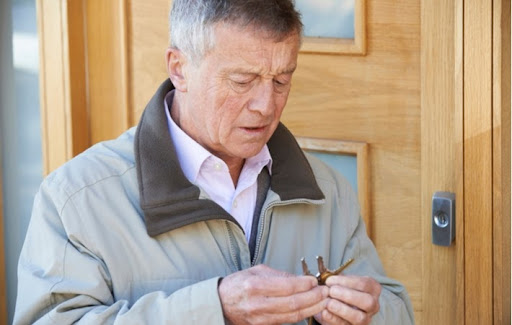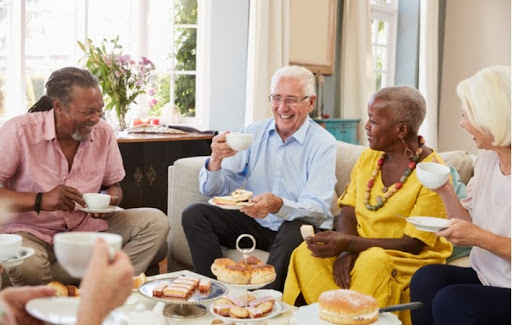Social interaction is not just about emotional health and wellness. In fact, it has a lot to do with our physical health and wellness as well. Social interaction is like exercise for the brain. It can help lessen symptoms associated with aging, such as deteriorating memory, and has been linked to:
- An increase in self-esteem
- Better eating habits
- More energy for exercising
- Better quality sleep
Being social forces the brain to be active. We may overlook this when we’re young, but it is an important skill to maintain as you age. As you age and need more and more memory care, social interaction can make a big difference.
Keep reading to learn more about how social interaction can help seniors who are suffering from memory loss.
Memory Loss and Aging
It’s normal to forget things once in a while as we age, but serious memory problems make it hard to do everyday things like:
- Driving
- Using the phone
- Keeping up with the conversation
- Remembering where you’re going
If you are suffering from any symptoms associated with memory loss, talk with your doctor to determine whether your symptoms are a part of normal aging and what may be causing them.
Causes of Age-Related Memory Loss
Reversible Causes
Many medical problems can cause memory loss or other dementia-like symptoms. Most of these conditions can be treated. Your doctor can screen you for conditions that cause reversible memory impairment.
Possible causes of reversible memory loss include:
- Certain medications
- Minor head trauma or injury
- Stress and anxiety disorders
- Depression
- Alcohol consumption
- Vitamin B-12 deficiency
- Hypothyroidism
- Brain diseases such as a tumor or infection
Permanent Causes
Diseases that cause progressive damage to the brain — and consequently result in dementia — include:
- Alzheimer’s disease
- Dementia
Seniors and Isolation
Studies show that more than one in three adults over the age of 45 feel lonely. In addition to this, approximately one in four adults aged 65 and older are considered to be socially isolated.
Health Risks of Loneliness
Older adults are at increased risk for loneliness and social isolation because they are more likely to face factors such as:
- Living alone
- Loss of family or friends
- Chronic illness
These can all have an impact on our physical and mental health. For example, loneliness is associated with the following health risks:
- Hospitalization and premature death
- Dementia
- Heart disease
- Depression, anxiety, and stress disorders

Red flags that your elderly loved ones are struggling
If loved ones are doing any of the following, it may be time to talk with a doctor:
- Repeating questions or stories
- Getting lost in well-known places
- Having trouble following directions
- Forgetting to keep up with standard routines such as eating and hygiene
- Troubles with speech
- Taking longer to complete daily tasks
- Frequently losing belongings
- Mood swings for no reason
Benefits Of Social Interaction For Seniors
According to the National Institute of Health (NIH), there are three main benefits of social interaction for seniors. These include:
- It improves a senior’s purpose and feeling of belonging
- It improves physical and emotional health
- It contributes to the overall quality and length of life
What Can You Do If You Are Experiencing Loneliness?
Your doctor can assess your risk for loneliness and social isolation. If you are experiencing loneliness, your doctor can show you programs or resources in the community that can help you.
Tips to Stay in Touch
If you are a senior and you want to become more socially active, you can try some of the following tips:
- Volunteer
- Call local community centers to see if they offer any senior programs
- Plan regular visits or video calls with loved ones
- Talk to your loved ones about your experience
Online Resources
If you’ve made an appointment with your doctor but want to read up on some tips before you can see them, we’ve compiled a list of online resources to help you:
Help Seniors Stay Happy and Healthy During the Pandemic
Now that social interaction has become limited due to the coronavirus pandemic, how can seniors stay social?
At Barton House, we know how important social interaction is for every one of our residents, that’s why we have a way for seniors to connect with each other virtually. Our senior living virtual connections is a hub for free activities you can do digitally with friends and family.
Contact us today if you have any questions or concerns about loneliness or are interested in what our community could do for you!



